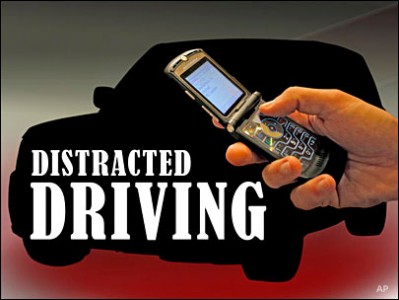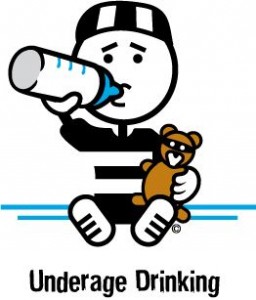Now or Never – DWI Expunction
Friday, September 25th, 2015 As a prelude to this text, please keep in mind that we are referencing DWIs currently eligible for expunction (i.e., those convicted of a DWI that were released from supervision 15 or more years ago) under N.C.G.S. § 15A-145.5.
As a prelude to this text, please keep in mind that we are referencing DWIs currently eligible for expunction (i.e., those convicted of a DWI that were released from supervision 15 or more years ago) under N.C.G.S. § 15A-145.5.
The window of opportunity for having your DWI conviction expunged is closing fast! Under S.L. 2015-150, DWIs will no longer be eligible for expunction in North Carolina as of December 1, 2015. Whether you plan to file a new petition or you have a petition pending, as of December 1st there will be no questions as to whether your request for DWI expungement will be granted or denied.
Interestingly enough, it will be exactly 3 years on December 1, 2015 since North Carolina passed a law permitting the expungement of DWIs, under N.C.G.S. § 15A-145.5—certainly not much time to have your DWI expunged!
We’ve mentioned in previous posts the severity of DWI consequences in North Carolina. If you or someone you know was released from DWI supervision 15 or more years ago, please call us at 910-793-9000 to discuss your expungement eligibility. Here at Collins Law Firm, time is of the essence! Call us today to schedule a consultation.
By Amber Younce, Legal Assistant

 The North Carolina case Britt v. North Carolina serves as a breakthrough precedent for North Carolinians who lost their right to bear arms due to felony charges. In 1979, Barney Britt plead guilty to PWISD methaqualone (possession with intent to sell and deliver–a central nervous system depressant). He was sentenced to 4 months in prison and probation thereafter. At the end of his sentence in 1987, Mr. Britt’s rights as a North Carolina citizen were fully restored, including the right to bear arms. In 2004, N.C.G.S. §14-415.1 declared it unlawful for any felon to bear any type of firearm despite their reason. Britt sued the state arguing that this new law was unconstitutional. After several hearings and appeals, his case was taken to the Supreme Court where the jury ruled in Britt’s favor. Arguably, Britt served his sentence as a convicted nonviolent felon, and 30 years later had not committed any crime despite that he possessed firearms. Ultimately, Britt had “affirmatively demonstrated that he is not among the class of citizens who pose a threat to public peace and safety” and therefore, a regulation that prohibited him from possessing a firearm could not be “fairly related to the preservation of public peace and safety.”
The North Carolina case Britt v. North Carolina serves as a breakthrough precedent for North Carolinians who lost their right to bear arms due to felony charges. In 1979, Barney Britt plead guilty to PWISD methaqualone (possession with intent to sell and deliver–a central nervous system depressant). He was sentenced to 4 months in prison and probation thereafter. At the end of his sentence in 1987, Mr. Britt’s rights as a North Carolina citizen were fully restored, including the right to bear arms. In 2004, N.C.G.S. §14-415.1 declared it unlawful for any felon to bear any type of firearm despite their reason. Britt sued the state arguing that this new law was unconstitutional. After several hearings and appeals, his case was taken to the Supreme Court where the jury ruled in Britt’s favor. Arguably, Britt served his sentence as a convicted nonviolent felon, and 30 years later had not committed any crime despite that he possessed firearms. Ultimately, Britt had “affirmatively demonstrated that he is not among the class of citizens who pose a threat to public peace and safety” and therefore, a regulation that prohibited him from possessing a firearm could not be “fairly related to the preservation of public peace and safety.” Over the past few years, thanks to technology advancement, Americans have made cell phone or smart phone use part of their daily lives. Many even consider it a necessity to have their phone on them at all times for work or personal purposes. Cell phones are designed to provide us with the convenience of communication while on the go, and now smart phone owners have access not only to communicate via telephone but they can also access text messaging, emails, music, games, social media, and so much more. Cell phones were created to make life easier and more efficient, but when used irresponsibly, they can have disastrous consequences.
Over the past few years, thanks to technology advancement, Americans have made cell phone or smart phone use part of their daily lives. Many even consider it a necessity to have their phone on them at all times for work or personal purposes. Cell phones are designed to provide us with the convenience of communication while on the go, and now smart phone owners have access not only to communicate via telephone but they can also access text messaging, emails, music, games, social media, and so much more. Cell phones were created to make life easier and more efficient, but when used irresponsibly, they can have disastrous consequences. A new policy in the Fifth Prosecutorial District that affects youths charged with underage drinking has gone into effect as of late November of 2014. This new policy will reshape the requirements for those who enter into a deferred prosecution agreement for an underage drinking charge. The goal of this new program is to help young offenders by teaching them the risks and consequences of underage alcohol consumption as well as avoiding a permanent mark on their criminal record. This program will only be offered to first time offenders that have not previously been convicted of any drug or alcohol crimes.
A new policy in the Fifth Prosecutorial District that affects youths charged with underage drinking has gone into effect as of late November of 2014. This new policy will reshape the requirements for those who enter into a deferred prosecution agreement for an underage drinking charge. The goal of this new program is to help young offenders by teaching them the risks and consequences of underage alcohol consumption as well as avoiding a permanent mark on their criminal record. This program will only be offered to first time offenders that have not previously been convicted of any drug or alcohol crimes. Generally, the fact that one was charged with a crime remains on their record regardless of the disposition of the charge, unless the charge gets expunged. An expungement in North Carolina is the eradication of one’s criminal record by court order. The effects of an expunction or expungement are outlined in N.C.G.S. § 15A-153 and include that upon expunction one may truthfully and without committing perjury or false statement deny or refuse to acknowledge that the criminal incident occurred.
Generally, the fact that one was charged with a crime remains on their record regardless of the disposition of the charge, unless the charge gets expunged. An expungement in North Carolina is the eradication of one’s criminal record by court order. The effects of an expunction or expungement are outlined in N.C.G.S. § 15A-153 and include that upon expunction one may truthfully and without committing perjury or false statement deny or refuse to acknowledge that the criminal incident occurred. The U.S. prison population is six to ten times as high as in most Western European nations and many say that this is because of the Unites States War on Drugs. More than 749,000 people were arrested in the United States for marijuana-related offenses alone in the year 2012.
The U.S. prison population is six to ten times as high as in most Western European nations and many say that this is because of the Unites States War on Drugs. More than 749,000 people were arrested in the United States for marijuana-related offenses alone in the year 2012. North Carolina is fortunate to be the hot spot to many tourists because of it’s southern beaches, historical sites, and beautiful landscape. Another attraction that North Carolina is naturally endowed with are some of the greatest motorcycle rides in America that attract bikers from all over. A popular one on the Eastern side of North Carolina is the Topsail Loop ride- which travels from Jacksonville NC to Topsail NC passing over the Atlantic Intracoastal Waterway and traveling through Surf City, NC. With an increase of bikers on the roads, North Carolina decided to pass a new motorcycle safety law, to be effective October 1st, 2013, which will increase penalties for unsafe movements by drivers that threaten the property and safety of motorcyclists. This law, titled the Motorcycle Safety Act, which will change the reading of G.S. 20-154 to read as rewritten:
North Carolina is fortunate to be the hot spot to many tourists because of it’s southern beaches, historical sites, and beautiful landscape. Another attraction that North Carolina is naturally endowed with are some of the greatest motorcycle rides in America that attract bikers from all over. A popular one on the Eastern side of North Carolina is the Topsail Loop ride- which travels from Jacksonville NC to Topsail NC passing over the Atlantic Intracoastal Waterway and traveling through Surf City, NC. With an increase of bikers on the roads, North Carolina decided to pass a new motorcycle safety law, to be effective October 1st, 2013, which will increase penalties for unsafe movements by drivers that threaten the property and safety of motorcyclists. This law, titled the Motorcycle Safety Act, which will change the reading of G.S. 20-154 to read as rewritten:
 Year after year during the Thanksgiving holiday period we experience one of the most travel heavy times of the year. This year a large storm threatens our Thanksgiving holiday travel and may require a lot of patience while on the roads.
Year after year during the Thanksgiving holiday period we experience one of the most travel heavy times of the year. This year a large storm threatens our Thanksgiving holiday travel and may require a lot of patience while on the roads. In just a few weeks a new law will be going into effect in North Carolina called “The Hassani N. Wesley Students’ School Bus Safety Act.” This act was passed earlier this year, but is scheduled to come into effect on December 1st, 2013. This bill will ultimately create harsher penalties for North Carolina drivers who illegally pass school buses.
In just a few weeks a new law will be going into effect in North Carolina called “The Hassani N. Wesley Students’ School Bus Safety Act.” This act was passed earlier this year, but is scheduled to come into effect on December 1st, 2013. This bill will ultimately create harsher penalties for North Carolina drivers who illegally pass school buses.